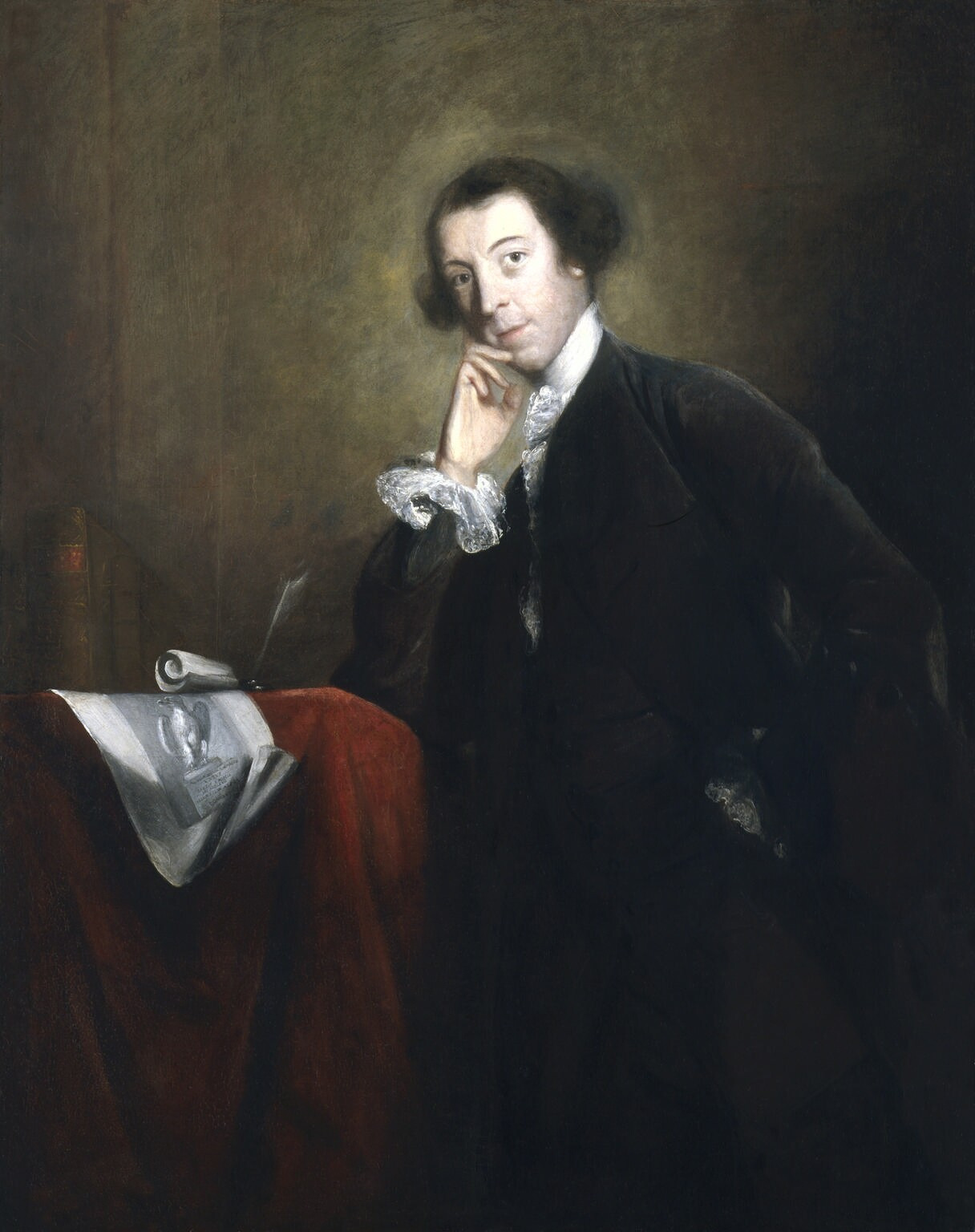His father arranged three sinecures for him with a total income of £3,400 a year. Despite that, he took off for a two-year Grand Tour of Europe with his friend from Eton, Thomas Gray, the future poet. They fell out in Florence, and made their own way. Horace never married nor was ever said to have a mistress. Historians are divided about whether he should be regarded as gay.
On return in 1741 Horace was given the Parliamentary seat of Callington, Cornwall. He held the seat for thirteen years without ever visiting the constituency.
Horace liked to dress as an eroticized older woman, a role that he wore at masquerade balls. In 1742 he wrote to Horace Man: “I was last week at the masquerade dressed like an old woman, and passed for a good mask”, and Lady Hervey described him as afterwards standing for a hour in “stays and underpetticoats’ before his footman. (Correspondence, I(17), 359).
Robert Walpole died of gout in 1745 and left Horace the office of Collector of the Customs, worth £1,000 a year. Walpole and Gray resumed their friendship in 1745, the year of the Jacobite Rising.
In 1751 Horace’s elder brother, Edward (1706-84), was indicted for buggering a servant, based on the say so of a gang of blackmailers. He was able to obtain a verdict of not guilty and proceeded to prosecute three of the gang for conspiracy to extort. They were sentenced to the pillory and to 2-4 years imprisonment.
Horace was Member of Parliament for Castle Rising 1754-7, and then for King’s Lynn till 1768.
Walpole is credited with coining the word ‘Serendipity’ in 1754 after reading Michele Tramssino’s The Three Princes of Serendip. By this time, despite being ectomorphic and eating little, he had started to suffer from gout.
He is the author of The Castle of Otranto, which is taken to be the first Gothic Novel. The first edition, 1764, was published anonymously on his own printing press.
In 1770, Horace was one of the first to receive the gossip from Paris that Charles d’Eon was a woman.
Walpole was a lifelong Whig supporting the Hanoverian Monarchy. He was quoted as saying: “This world is a comedy to those that think, and a tragedy to those that feel”.
Robert Walpole had been created Earl of Orford in 1742. The title passed to his eldest son, also Robert in 1745, and then to his son who died unmarried in 1791, and, Edward having already died with only illegitimate daughters, the title fell to his uncle Horace, who also had no issue.
After Mary Wollstonecraft published her A Vindication of the Rights of Man in reponse to Edmund Burke's Reflections on the Revolution in France, Walpole put her down as "a hyena in petticoats" for attacking Marie Antoinette, in that she like most commentators deplored Burke's theatrical pity for the french Queen. He was saying that it was unnatural for a woman to write a book.
In his later years, Horace became so infirm that his secretary wrote his letters.
The apparent canard that Edward Hyde, Lord Cornbury, dressed as Queen Anne while Governor of New York and New Jersey 80 years before, was told by Walpole in an evening of gossip in 1796.
Walpole died of gout aged 79. He left voluminous correspondence which was published in 44 volumes, and are frequently consulted by historians of the period. He left his wealth to Anne Damer, a sculptress who was known for her cross-dressing.
- Horace Walpole. The Castle of Otranto A Story. London: Printed for Tho. Lownds, 1765.
- Arthur J Viseltear. “The Last Illnesses of Robert and Horace Walpole”. The Yale Journal of Biology and Medicine, 56, 1983: 131-152.
- Terry Castle. Masquerade and Civilization: The Carnivalesque in Eighteenth-Century English Culture and Fiction. Stanford, Calif: Stanford University Press, 1986: 64, 73-4, 354.
- Rictor Norton. Mother Clap's Molly House: The Gay Subculture in England, 1700-1830. London: GMP, 1992: 95-6, 139, 234-5.
- Gary Kates. Monsieur D'Eon Is a Woman: A Tale of Political Intrigue and Sexual Masquerade. New York: Basic Books, 1995: 9, 180, 182, 256.
- Patricia Updegraff Bonomi. The Lord Cornbury Scandal: The Politics of Reputation in British America. University of North Carolina press, 1998: 14-16.
Was Walpole a transvestite? Even though the verb form, to transvest, was a well established word in eighteenth-century English, the question would not make sense to eighteenth-century Londoners. Transvesting was something that one did, not what one was. Even though they were starting to talk of a sodomist as a type of person superceding the previous usage that sodomy was something that one did, without an implication of being a type of person, the same progression had not happened with transvesting as such, even though some who transvested were by then regarded as 'mollies'. However there is no record of Walpole being in a molly house, and his being an aristocrat it is almost unthinkable that he would be regarded as a molly.


No comments:
Post a Comment
Comments that constitute non-relevant advertisements will be declined, as will those attempting to be rude. Comments from 'unknown' and anonymous will also be declined. Repeat: Comments from "unknown" will be declined, as will anonymous comments. If you don't have a Google id, I suggest that you type in a name or a pseudonym.